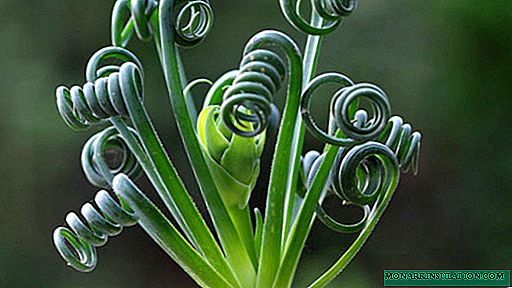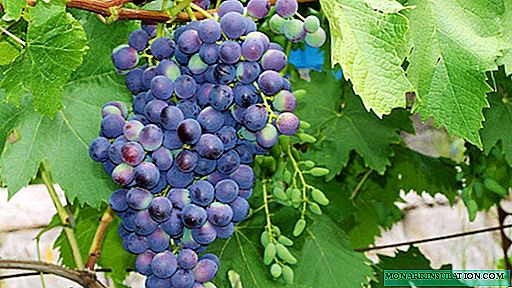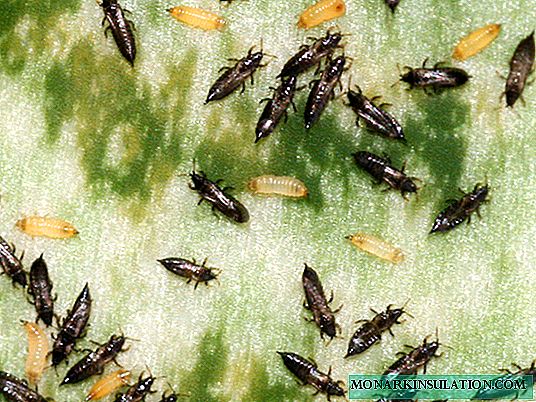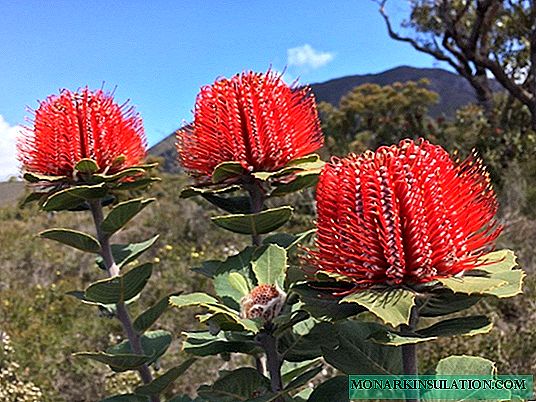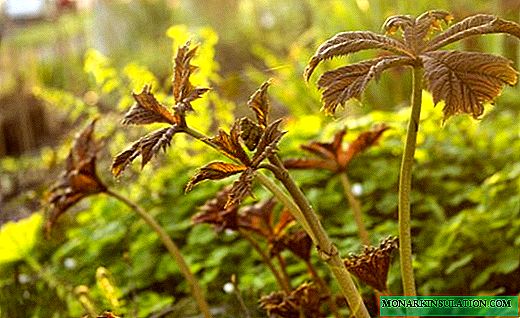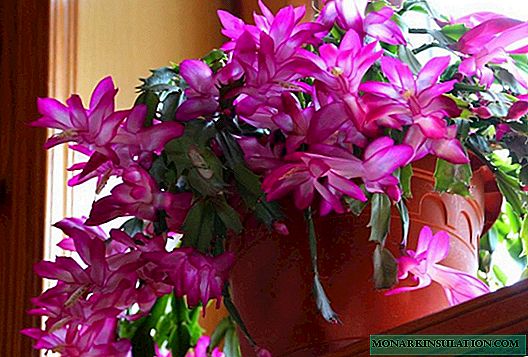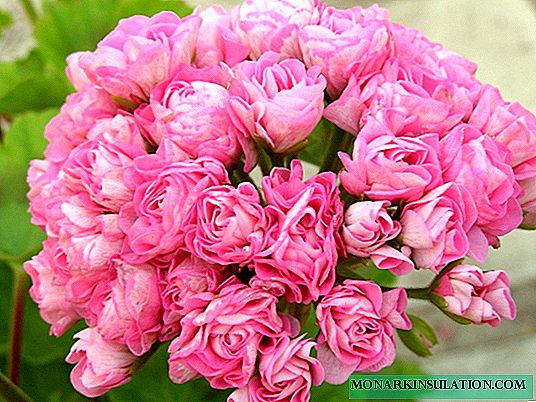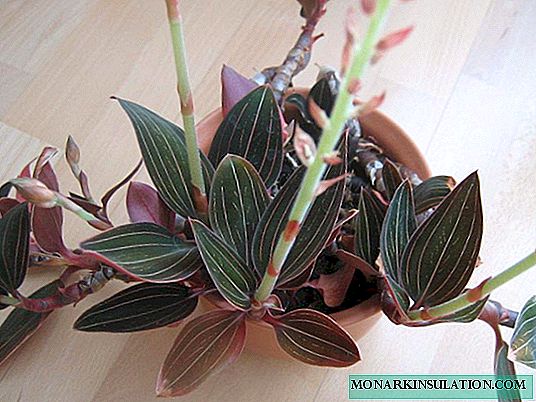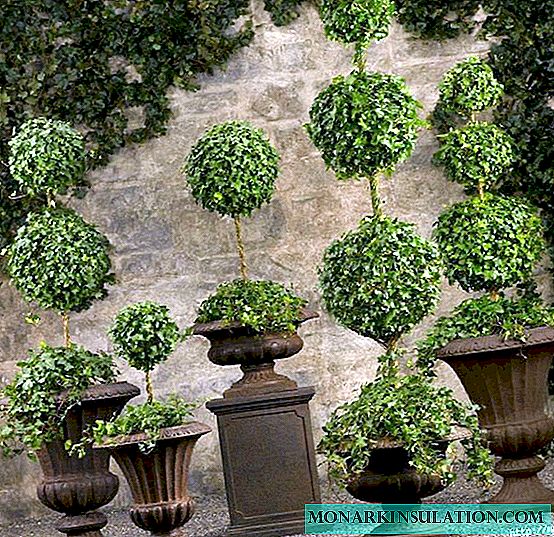Garden perennial carnation is a very decorative plant, and at the same time unpretentious. It is perfect for decorating a flower garden or an alpine hill. Separately, it should be noted that this plant not only pleases with lush flowering, but also with a pleasant aroma.
Annual carnation
Annual carnations have a huge variety of species. Ready mixes are available for sale, which allow you to grow a bush with a different shade of inflorescences. Also, growing this flower as an annual plant makes it possible to experiment with varieties. Annual cloves can be grown not only in open ground, but also in flowerpots, which expands the options for its application in the design of the site.
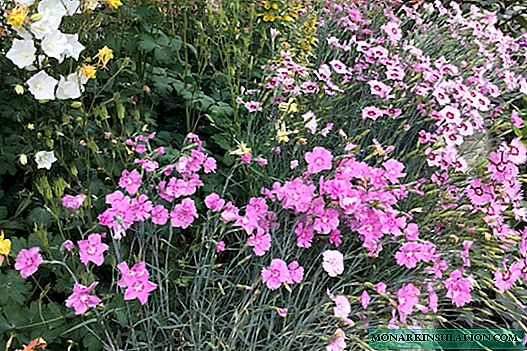
Carnations in the flowerbed
To grow this plant, a seedling method is used as an annual culture. Sowing seeds is carried out in late February - early March. For growing seedlings, light and nutritious soil should be used.
Important!Sowing is carried out on the surface, without burying the seeds in the soil. From above they can be sprinkled with a thin layer of sand.
The first 4-5 days, the container with seedlings should be in a dark room with a temperature of 18-20 degrees. After the entrances appear, it must be placed on the sunny windowsill. After a month, seedlings should be peaked and pinched tops.
Young plants should be planted in the ground no earlier than May. The threat of frost should have passed by this time, and the soil will already be sufficiently warmed up.
Perennial cloves
This wonderful flower is quite simple to grow. To obtain a new instance, you can use several types of reproduction:
- by seeds;
- cuttings;
- layering;
- dividing the bush.
The choice of method depends on the variety of the flower and the technology for growing it. Heat-loving clove varieties are usually grown as an annual or biennial plant. There are certain species, like the Dutch variety, which can only be fully grown in the greenhouse.
Perennial garden cloves - what is the best way to propagate
The two most common methods of propagation of this species are seeds and cuttings. Both of these methods are widely used by gardeners.
Seed propagation for perennial cloves is more preferable. This makes it possible to obtain a plant with a different shade of inflorescences and allows you to grow this culture in pots and flowerpots. In addition, it is not always possible to get the cuttings of the plant of the particular variety that was dreamed of. Acquiring seeds in this sense is a simpler task.
Perennial clove seeds can be obtained independently. To do this, wait until the flowering ends and leave a few faded inflorescences on the bush for seed ripening. When the seeds ripen, they are gently pulled out into a small paper envelope and laid out with a thin layer to dry. Next, the prepared seeds are placed in airtight packaging and stored in a dark and dry place.
Attention! To obtain seeds, you should choose only healthy plants. Some diseases can be transferred to young seedlings.
Popular types and varieties
The number of species and varieties of perennial cloves is striking in variety. There are types of compact and miniature, and there are higher ones suitable for use in bouquets.
Cloves perennial stunted
One of the most unpretentious species. It is widely used in landscape design to design mixborders and alpine slides. Most varieties are unpretentious in care and are able to fully grow even on the poorest soils.
There are many popular undersized varieties. One of them is sandy. She is very unpretentious. Prefers sunny places. The height of the shoots does not exceed 30 centimeters. Flowering is plentiful from July to the end of August.

Sandy
Perennial Turkish Carnation
One of the most frost-resistant varieties. Suitable for growing in almost all regions of Russia.
The flowers are fragrant, collected in inflorescences, on one plant can have a different shade. Great for arranging bouquets. The height of the shoots is about 70 centimeters. Flowering lasts from June to the end of July.

Turkish
Perennial Chinese carnation
It is a perennial plant, but in regions with a cold climate it is recommended to grow two-year-old cloves.
Depending on the variety, the flowers may vary in shades and size, some varieties have terry inflorescences.
Flowering occurs in August. Some varieties are characterized by longer flowering throughout the summer. The length of the shoots can be from 15 to 50 centimeters.

Chinese
Perennial Clove
It differs in a rather large size of flowers - 2-3 centimeters in diameter. The height of the bush does not exceed 30 centimeters.
It blooms from early June to late August.
Attention! The most popular varieties are Sonata, Alba and Desdemona.

Cirrus
Perennial Alpine Carnation
One of the most undersized and compact species, you can say dwarf, the height of the shoots varies from 15 to 25 centimeters.
Flowers have a pink or crimson hue.
Unpretentious and able to grow on poor rocky soils. Great for decorating alpine slides.

Alpine
Carnation Shabo Perennial
A distinctive feature of the variety is that terry flowers are collected in inflorescences. It also has a long flowering period - from July to the onset of cold weather.
The height of the shoots can reach 65 centimeters.
Attention! The most popular varieties with large flowers are Aurora and La France.

Shabo
Perennial cloves
Groundcover plants are widely used in landscape design. Many of them are not only unpretentious, but also abundant flowering. The most common type of groundcover is cloves.
The grass has creeping shoots, which during flowering are covered with a large number of inflorescences. It is not demanding on soil and is able to grow even on rocky ground. It requires minimal watering and maintenance.
The main requirement for this plant is a sunny place.

Grass
Outdoor planting and care
Several methods can be used to propagate perennial cloves. It depends on the selected variety and the possibilities of the grower.
Seed propagation
One of the most common methods of propagation of garden perennial cloves is the cultivation of seedlings from seeds. This method allows you to get the plant of the desired variety without much labor.
You can start sowing from the end of February. The process of growing seedlings can be divided into several stages:
- Soil preparation and tanks
The soil for sowing should be light and nutritious. To prepare it, mix garden soil with three parts of sand, two parts of compost and one part of peat. Capacity and prepared soil must be disinfected. To do this, either processing with a solution of potassium permanganate is used, or disinfection by calcination.
- Seed preparation
First of all, you need to decide on the grade. After the choice is made, the seeds should be soaked in a weak solution of manganese for disinfection.
- Sowing
Clove seeds should not be buried in the ground. They are sown on the surface of the soil and sprinkled on top with a small amount of sand.
Next, the container is covered with film or glass and kept at a temperature of at least 18 degrees in a dark room. After the emergence of seedlings, seedlings are moved to the maximum light window sill.
Important!For full growth, young shoots require a lot of light. If there is not enough sunlight, seedlings should be illuminated. This will avoid stretching and weakening the shoots.
After a month, when the plants grow up, they must be peaked and pinched top.
Propagation by cuttings
If possible, you can get a new instance of the plant of the desired variety by cuttings. This method allows you to accelerate the process of reproduction and achieve flowering in the year of planting.

Cuttings suitable for propagation of cloves
Start harvesting cuttings in late May or early June. To do this, use a healthy shoot, which has 3-4 leaves. Lower leaves should be removed.
Attention! Prepared cuttings before planting are recommended to be treated with a special drug to stimulate root growth.
Next, the treated cuttings are buried in the prepared soil. It is better to choose the soil light, sandy. Also, before planting it should be moistened. If all conditions have been met, after 2-3 weeks the root system will form and the seedlings will start growing.
Bush division
This method is also applicable to perennial cloves. But you can not use it for all varieties of this plant. In some species, the root system has one core and it is not possible to divide such a bush.
To obtain a new plant in the spring, the bush is completely dug up and divided into two or more parts. Then, obtained as a result of division, plants can be transplanted into the ground in a permanent place.
Care for young plants
Young seedlings for full development should provide full care. It should be ensured that the soil does not dry out. At first, young plants constantly need moisture.

Carnation seedlings
The tops of the plant should be pinched. This will enhance the branching of the shoots and not allow the seedlings to stretch.
It is also worth paying attention to loosening the soil and weeding it from weeds.
Before the onset of cold weather, planting should be covered. Young, not strong plants can not tolerate severe frosts. Wintering without shelter can lead to the death of plants.
Planting seedlings in the ground
You can start planting seedlings in the soil only after the threat of frost has passed and the soil has been sufficiently warmed up. As a rule, this is the middle - the end of May. But for individual regions, dates may be later, given the climate.
Before embarking on the landing of finished seedlings, you should decide on the place of planting. This perennial prefers sunny places. The soil must be prepared depending on the exactingness of the selected variety. Some species prefer nutritious soils, and for some varieties poor rocky soils are sufficient.
Carnation care in flower beds
Despite the unpretentiousness of this plant, it still needs some care.
One of the important points is watering. For cloves, it should be moderate.
Important! This plant tolerates mild drought better than excessive waterlogging of the roots.
Also, for plentiful and prolonged flowering, fertilizing with mineral fertilizers should be carried out regularly. Organic feeding is better not to use, only the use of compost in limited quantities is permissible.
Certain species, such as perennial bush cloves, require support and garter. Under the weight of the inflorescences, fragile shoots can break, so they should be carefully tied to the support. It is better not to tighten the mount so as not to damage the stems.

Garden cloves in flowerpots
Diseases and Pests
Perennial garden cloves are highly resistant to pests and diseases. With proper care, plants, as a rule, do not get sick.
Important! Most often, cloves are affected by aphids and spider mites. It is also susceptible to fungal infections. In case of illness, the plant should be treated with appropriate chemicals. It is also recommended to carry out treatments for prevention. You can use homemade folk pest control, but they are usually ineffective.
Garden clove is a spectacular and unpretentious plant. With minimal care, it pleases with lush blooms every year.
The variety of varieties allows you to choose the variety that is most suitable for style and preference. Someone prefer a long-lasting terry clove, and someone will prefer an annual variety.
Reproduction of this plant also does not require special skills. It can be performed by growing seedlings from seeds, cuttings or dividing the bush. Depending on the characteristics of the variety, one or another method can be chosen.
Cloves can be cultivated as a perennial or annual plant. Depending on this, the method of reproduction should be chosen and the features of agricultural technology taken into account. Everyone, even a beginner, can grow this wonderful flower on a garden plot.

